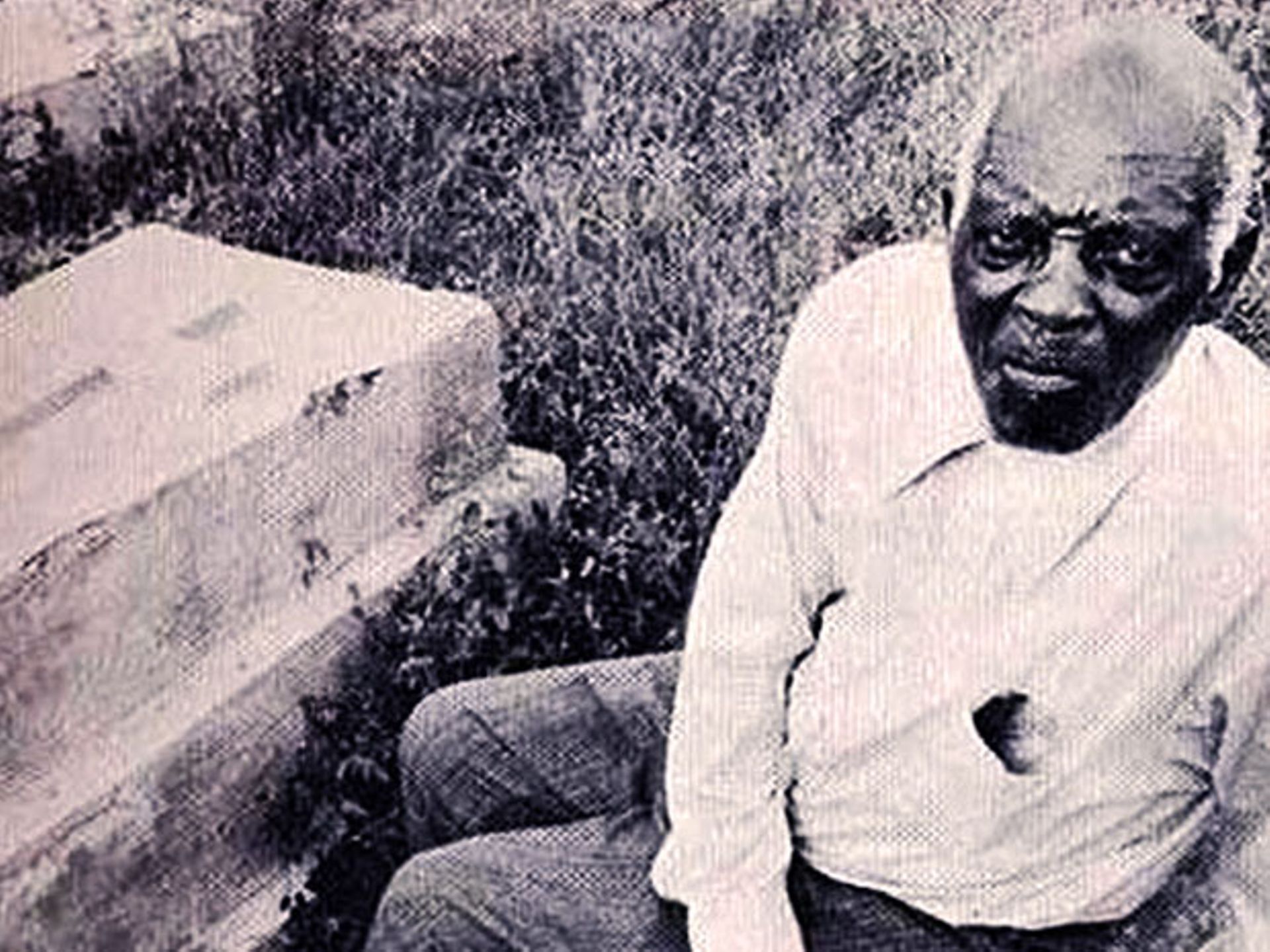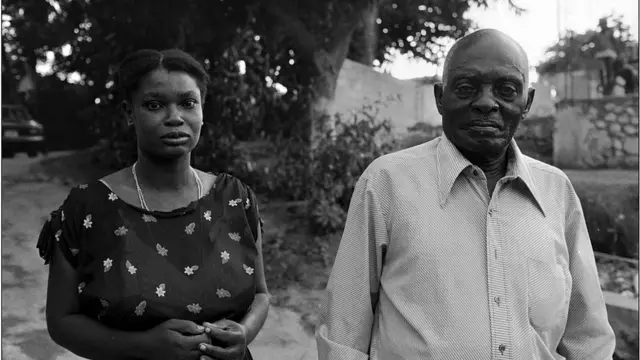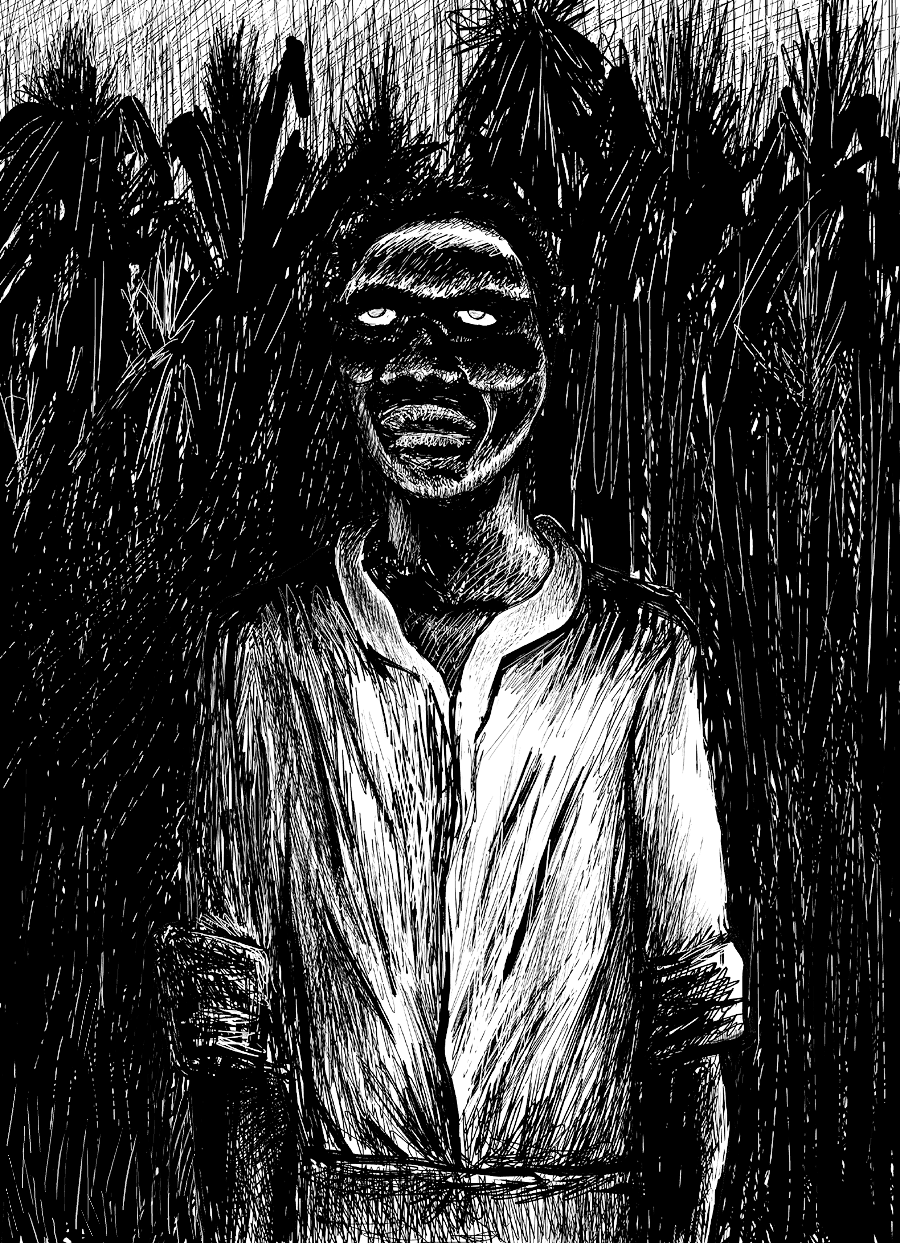In the collective imagination, the word “zombie” evokes terrifying figures, often associated with Haitian culture. However, the story we are about to tell is not fiction. It’s the story of a man believed to be dead, buried, and who, eighteen years later, reappeared as though he had returned from the dead…
Clairvius Narcisse, a Haitian farmer born around 1922, is a name that the people of the Artibonite region have not forgotten. On May 2, 1962, at the Albert Schweitzer Hospital in Deschapelles, in central Haiti, Narcisse was declared dead. The doctors, helpless, recorded an unexplained respiratory failure. The next day, he was buried in the village of L’Estère. For everyone, the case was closed. Clairvius Narcisse was dead and buried.
But then, eighteen years later, in 1980, something unbelievable happened. Angelina Narcisse, Clairvius’ sister, was approached by a man who claimed to be her long-lost brother. He told a shocking story: he had been the victim of zombification…
The man with the face of death

Clairvius Narcisse, with sunken features and a troubled mind, explained that after his apparent death, he was dug up by men under the command of a bokor, a voodoo sorcerer. The motive? A sordid inheritance dispute. Narcisse accused his own brother of having paid the bokor to reduce him to a zombie state. Narcisse described how, under the influence of the “zombie powder,” a cocktail of substances including tetrodotoxin, a poison extracted from pufferfish, he had been plunged into a deep paralysis that mimicked death. Conscious but unable to move, he remembered feeling the cold earth of his own grave closing over him.
For two years, Clairvius Narcisse claimed to have been kept in a semi-conscious state, forced to work as a slave on a sugar cane plantation, surrounded by other “living dead.” According to him, the daily routine was maintained by regular doses of a drug that kept the zombies in a state of submission. But one day, by chance, his overseer forgot to give him his dose of poison. And then, everything changed…
A flight to freedom

When the dose was forgotten, the fog enveloping his mind began to lift. Narcisse recalled feeling a mix of fear and newfound clarity. Taking advantage of his captors’ oversight, he escaped, wandering for years, hiding, and avoiding his brother, whom he still believed capable of harming him. It was only after his brother’s death that he dared to return to his sister Angelina, ready to reveal his identity and the nightmare he had lived through.
Such a story seems straight out of a horror novel. Yet, in 1982, Canadian anthropologist Wade Davis, a specialist in Haitian voodoo culture, decided to take the case seriously. He traveled to Haiti, determined to uncover the truth behind this unique case.
Wade Davis and the search for truth

In his book The Serpent and the Rainbow, Wade Davis attempts to provide a scientific explanation for the Clairvius Narcisse case. According to him, the famous “zombie powder” is real. It contains extracts from pufferfish, rich in tetrodotoxin, a neurotoxic poison that, in small doses, could induce a paralysis deep enough to simulate death. Davis argues that this poison, combined with other ingredients, was used by bokors to induce a catatonic state in their victims.
But Davis’s explanation is not unanimously accepted. Some scientists question the validity of his conclusions. They suggest that the psychological and cultural belief in voodoo could explain why individuals, under strong suggestion, believe they have been turned into zombies.
Zombification or manipulation?

Beyond the pharmacological and psychological explanations, the story of Clairvius Narcisse raises many questions. Why, after so many years, would this Haitian farmer make such a claim, risking ridicule and mistrust from his own community? What would motivate such an extensive lie? For those who knew him, his story did not seem like a hoax. Clairvius appeared truly marked by his experience, haunted by memories he insisted were real.
For some, he is living proof that the supernatural can intrude upon reality, breaking the boundaries of the possible. For others, he is the victim of a belief system amplified by years of fear and mental manipulation.
The case of Clairvius Narcisse remains a mystery, straddling science and the supernatural. A man declared dead rises from his grave to tell his story. Fiction or reality? Each must form their own opinion, but one thing is certain: Haiti, with its beliefs, rituals, and secrets, continues to surprise us.
